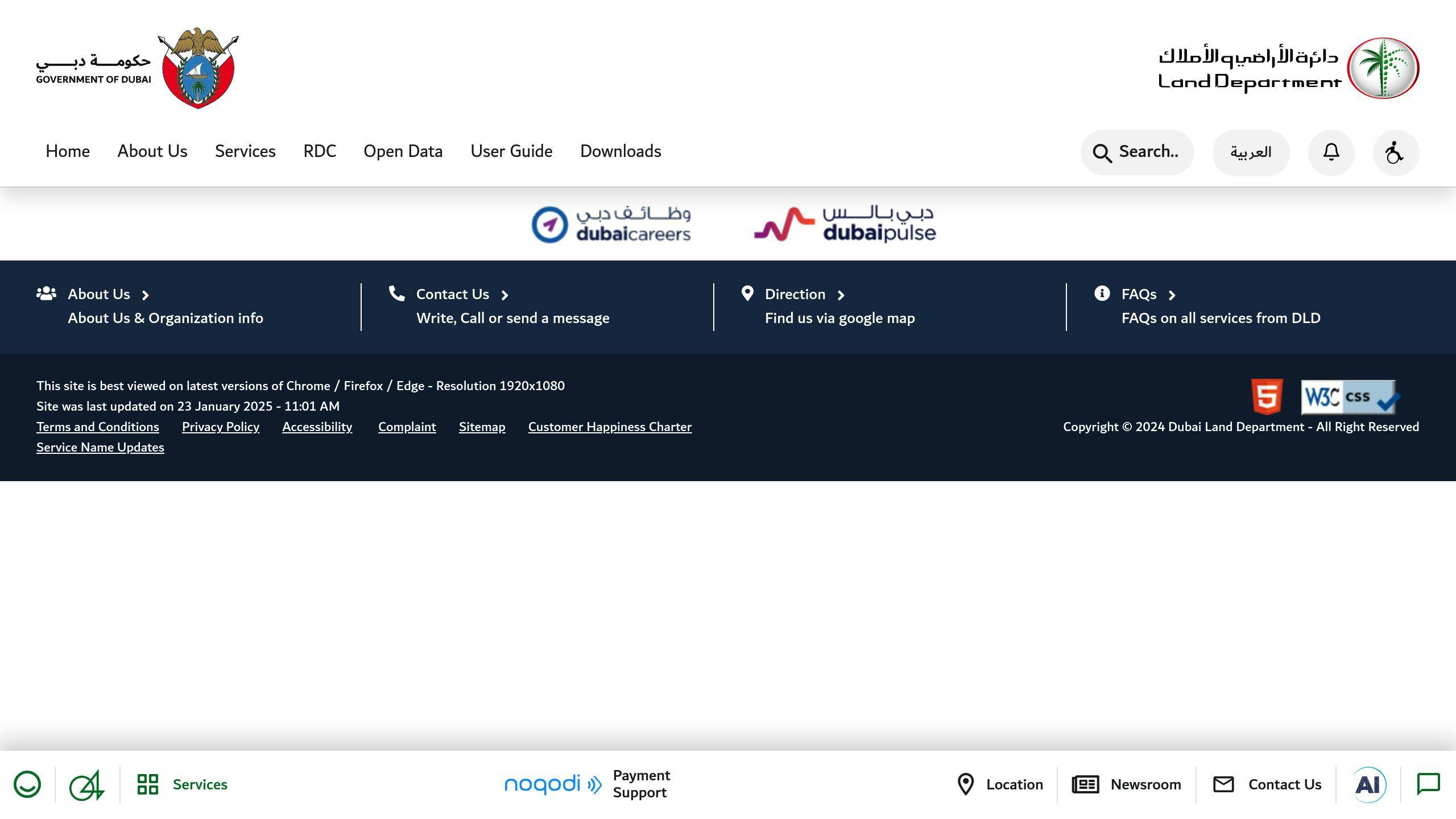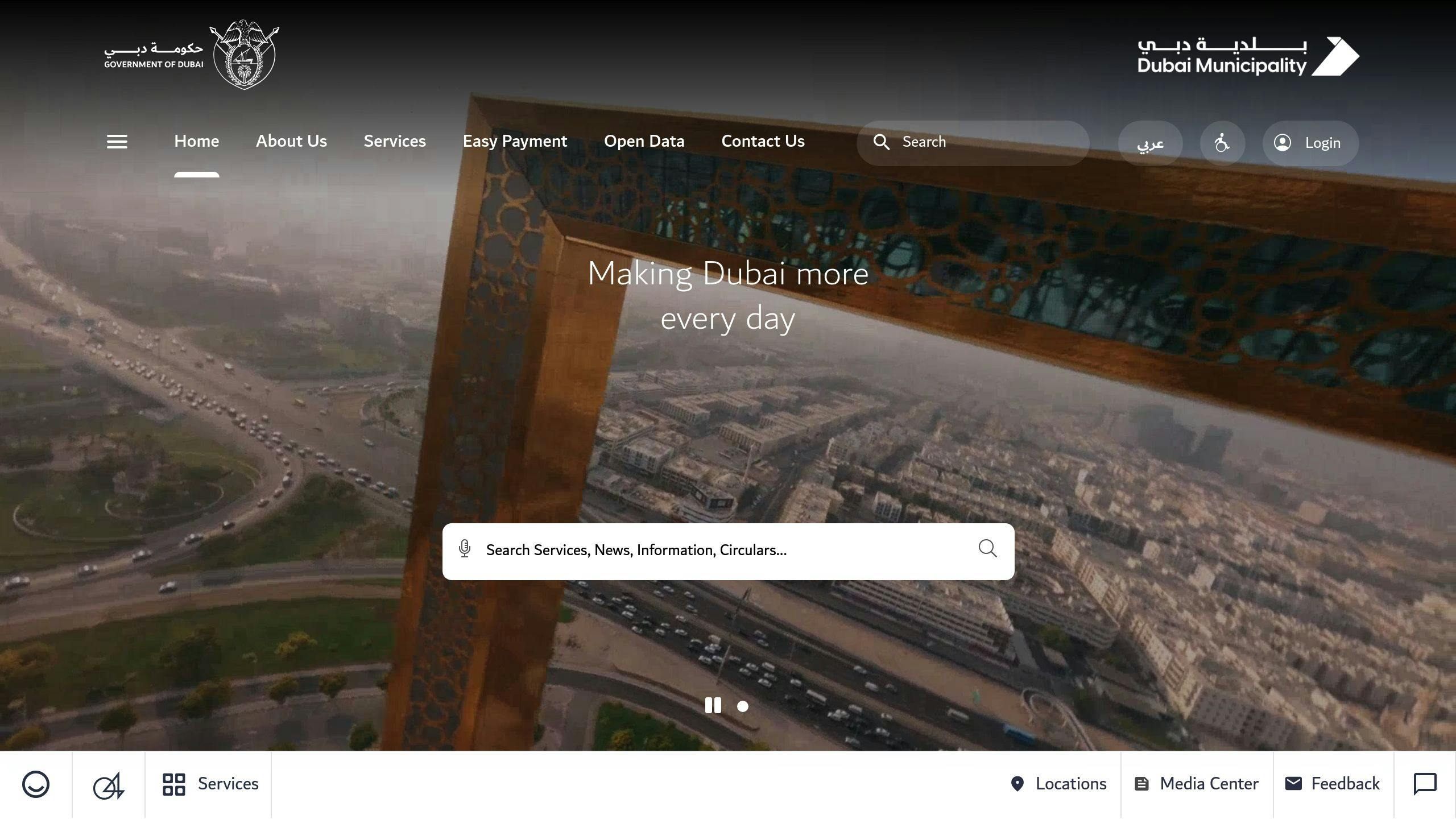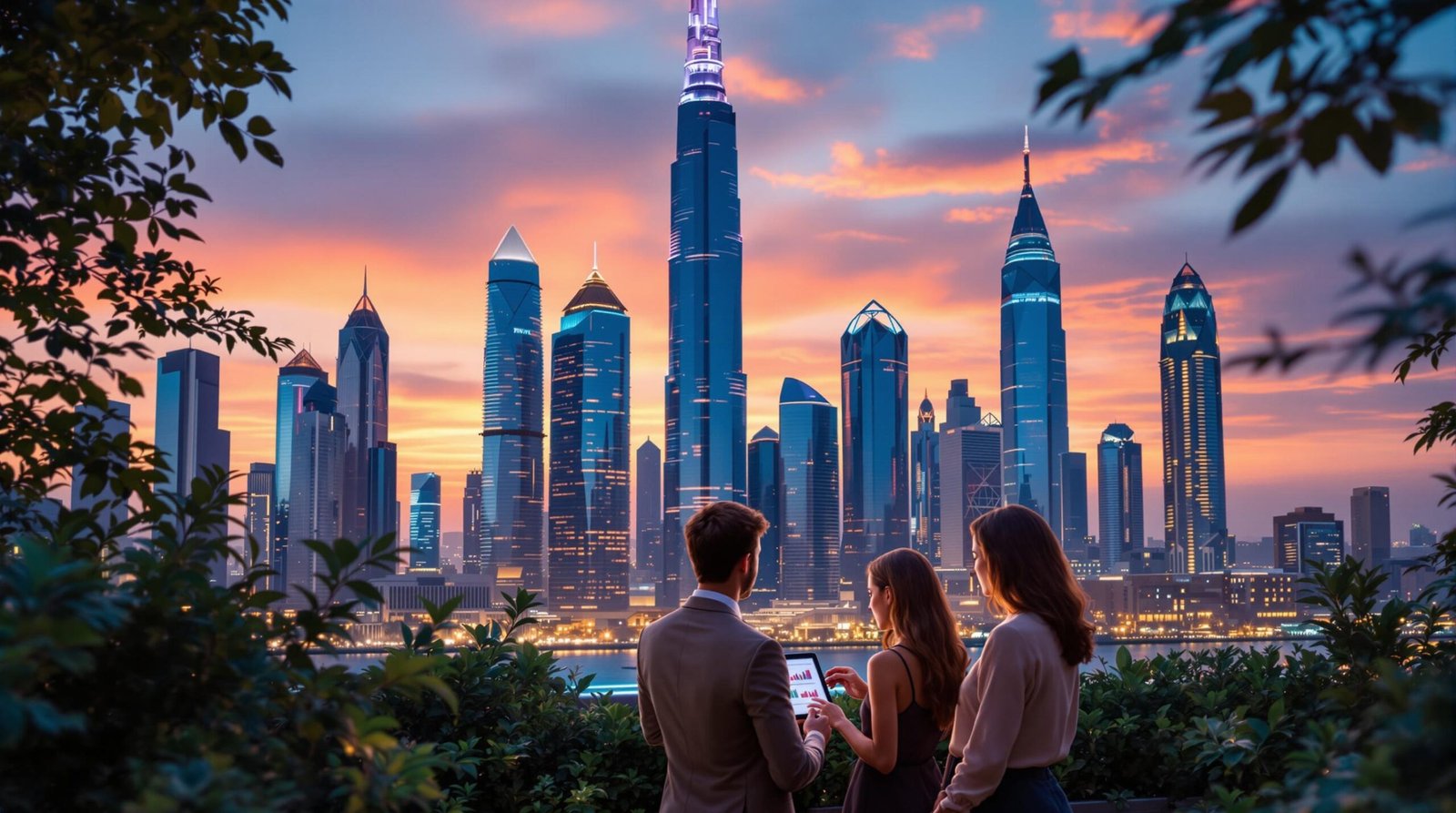Dubai rental properties must meet strict health and safety standards to ensure guest safety and comfort. These rules cover fire safety, hygiene, building upkeep, and guest protection. Non-compliance can lead to fines, penalties, or even permit loss. Here’s a quick overview of the key standards:
- Fire Safety: Smoke detectors, fire extinguishers, and clear emergency exits with monthly inspections.
- Cleanliness: Daily disinfection, quarterly pest control, and proper waste management.
- Building Maintenance: Regular checks for structural safety, utilities, and energy efficiency.
- Occupancy Limits: Minimum 5 sqm/person, as per Dubai Municipality regulations.
- Compliance Tools: Digital systems like StayHub help track inspections and certifications.
These guidelines ensure Dubai’s rental properties maintain high safety and quality standards, protecting both guests and the city’s reputation. Read on for detailed rules and tools to simplify compliance.
Updated Rules and Regulations of RERA and Dubai Land Department

Health and Safety Rules for Dubai Rentals
Key rules for operating rental properties in Dubai focus on four main areas:
Space Requirements and Occupancy Mohammed Kawasmi explains:
“The minimum space for occupancy, as per Dubai Municipality building code, stipulates that for residential accommodation or shared sleeping spaces, the allocated space per individual is 5.0 square metres from the net area.” [3]
Safety Essentials Safety measures revolve around three key categories:
| Safety Category | Key Requirements | Inspection Frequency |
|---|---|---|
| Fire Safety | Smoke detectors, fire extinguishers, clear emergency exits | Monthly |
| Building Systems | Electrical, plumbing, and structural integrity checks | Quarterly |
| Basic Amenities | Availability of running water, electricity, and sewage systems | Daily monitoring |
| Emergency Protocols | Evacuation plans and updated emergency contact details | Semi-annual review |
Compliance Monitoring Dubai’s DTCM regularly inspects properties to ensure these safety standards are met. Failure to comply can lead to penalties, such as fines of AED 5,000 for operating unlicensed holiday homes [1]. Property managers are also required to keep detailed records of all safety checks and maintenance activities.
Building Maintenance Standards Property owners are responsible for:
- Keeping the building structurally sound
- Scheduling regular maintenance
- Upgrading facilities to align with current regulations
- Recording all safety-related updates and improvements
Regular inspections help ensure these standards are consistently met.
Tools and Services for Property Managers
Property managers are increasingly turning to modern tools to meet health and safety standards effectively.
Digital Management Solutions
Property Management Systems (PMS) are now a must-have for managing health and safety compliance. These systems allow property managers to:
- Keep track of maintenance schedules
- Monitor the completion of cleaning services
- Record safety inspections
- Store compliance certificates in one place
Professional Services Integration
Using professional services ensures properties meet regulatory requirements. Here’s how different services contribute to compliance:
| Service Category | Purpose | Compliance Benefit |
|---|---|---|
| Regular Cleaning | Maintains hygiene | Aligns with DTCM cleanliness standards |
| Safety Inspections | Verifies compliance | Provides documentation for regulations |
| Emergency Response | Manages safety incidents | Satisfies emergency protocol requirements |
Compliance Tracking Features
Technology platforms simplify compliance management by offering features such as:
- Automated alerts for upcoming maintenance
- Scheduling tools for regular health and safety inspections
- Digital storage for compliance records and certificates
- Tracking tools for resolving violations
The Dubai Land Department has highlighted the importance of these tools. In August 2024, they prohibited 10 property owners from leasing their properties due to safety violations [3].
Platforms like StayHub streamline the process by connecting property managers with verified service providers and keeping digital records of all health and safety activities, ensuring compliance with Dubai’s strict property regulations.
1. Fire Safety Rules
Following Dubai Municipality Regulations

Rental properties in Dubai are required to have working smoke detectors and fire extinguishers, with monthly maintenance checks as part of the mandate. Property managers who fail to comply can face fines of up to AED 5,000 [1].
How Fire Safety Impacts Guests
Fire safety measures play a critical role in protecting guests. The table below highlights the main requirements and how they contribute to guest safety:
| Safety Requirement | Purpose | Guest Impact |
|---|---|---|
| Smoke Detectors | Detect fires early | Alerts guests quickly for safe evacuation |
| Fire Extinguishers | Control small fires | Allows immediate action to minimize risk |
| Emergency Exit Signs | Guide evacuations | Helps guests find exits during emergencies |
| Multilingual Safety Guides | Provide safety instructions | Ensures all guests understand procedures |
Making Fire Safety Manageable for Property Managers
Property managers can stay on top of fire safety requirements through these steps:
- Conduct monthly fire equipment inspections.
- Keep digital records of maintenance activities.
- Train staff on emergency procedures.
- Provide multilingual safety guides for guests.
Digital tools, such as StayHub, make it easier to manage compliance by organizing documentation and scheduling inspections efficiently. These solutions save time and help property managers ensure they meet all safety standards.
sbb-itb-9849306
2. Cleanliness and Hygiene Rules
Following Dubai Municipality Standards
Dubai Municipality has established strict rules to ensure cleanliness and hygiene in rental properties. These include mandatory pest control before renting out a property, proper waste management systems, and access to clean water and sanitation facilities. These measures work hand-in-hand with fire safety protocols to minimize health risks, especially in crowded spaces.
How Hygiene Impacts Guest Safety
Maintaining hygiene standards is crucial to preventing the spread of diseases. Here are three main areas of focus:
| Area | Requirements | Health Benefits |
|---|---|---|
| High-Touch Surfaces | Disinfect daily | Lowers infection risk |
| Water Systems | Regular upkeep | Avoids waterborne illnesses |
| Waste Management | Follow disposal protocols | Keeps pests under control |
Compliance and Maintenance
Failing to meet hygiene standards can result in serious penalties. The Department of Tourism and Commerce Marketing (DTCM) can issue fines of up to AED 5,000 for non-compliance [1].
| Task | Action | Frequency |
|---|---|---|
| Cleaning | Disinfect high-touch areas | Daily/Weekly |
| Pest Control | Inspections by licensed providers | Quarterly |
| Water Tank Maintenance | Professional cleaning | Every six months |
| Waste Disposal | Use sealed bins, schedule collections | Daily |
To ensure these standards are consistently met, property managers can use automated tracking systems aligned with Dubai’s smart rental index guidelines.
3. Building Upkeep Standards
Dubai’s rental index uses a 5-star rating system based on over 60 criteria to assess buildings. Among these, several health-related factors play a crucial role:
| Rating Criteria | Requirements | Impact on Compliance |
|---|---|---|
| Energy Efficiency | Use of energy-saving systems | Aligns with regulations |
| Security Systems | Modernized access controls | Enhances guest safety |
| Basic Amenities | Fully operational utilities | Ensures functionality |
These ratings are essential for maintaining guest safety and comfort, focusing on three main areas:
Impact on Guest Safety and Well-being
Building upkeep standards have a direct effect on guest safety and overall satisfaction. The Dubai Land Department (DLD) highlights that proper maintenance practices have contributed to a 20% drop in landlord-tenant disputes [2].
“This policy ensures market stability by tying rental values directly to property quality, providing tenants with fairer pricing while encouraging landlords to invest in improvements”, says Farooq Syed, Chief Executive of Springfield Properties [2].
Here’s how these standards impact safety:
- Structural Safety: Regular inspections and timely repairs are critical for maintaining a building’s integrity. Property managers must address any structural concerns quickly to keep their rating intact.
- Functional Amenities: Monthly inspections, as mandated by the Dubai Tourism and Commerce Marketing (DTCM), ensure that utilities and facilities are in working order.
- Energy Efficiency: Proper ventilation systems, supported by energy-efficient designs, help reduce health risks and comply with regulations.
Practical Steps for Property Managers
Dubai’s approach to property maintenance makes it easier for managers to stay compliant. Key actions include:
| Action | Frequency |
|---|---|
| Schedule official evaluations | Annually or after upgrades |
| Conduct professional servicing | Quarterly |
| Perform safety inspections | Monthly |
This structured approach ensures properties meet high standards while safeguarding tenant well-being.
4. Guest Safety Requirements
Guest safety requirements focus on protecting occupants directly, complementing the structural standards highlighted in Section 3. Together, these measures form a comprehensive safety framework in Dubai.
Following Dubai Municipality Regulations
Dubai has clear property safety regulations to prioritize guest protection:
| Safety Element | Key Requirement |
|---|---|
| Occupancy Limits | Minimum of 5.0 sqm/person |
| Emergency Systems | Quarterly protocol updates |
Enforcement and Guest Protection
The Dubai Land Department (DLD) plays a crucial role in enforcing these safety measures. For example, the DLD recently prohibited 10 property owners from leasing their properties due to non-compliance, demonstrating their strict oversight [3].
Simplifying Compliance for Property Managers
Property managers can use modern tools to simplify compliance and keep safety standards high. Some effective methods include:
- Hiring professional inspectors for regular evaluations.
- Providing digital safety briefings with guest acknowledgment.
- Using centralized maintenance logs integrated with Property Management Systems (PMS).
These measures help create a reliable safety system that protects guests while upholding Dubai’s reputation for excellence in hospitality.
5. Health Checks and Compliance
Structural standards lay the groundwork for safety, but ongoing health monitoring ensures a complete safety net for guests.
Dubai’s smart rental index, which uses a 1-5 star rating system, evaluates buildings based on maintenance records and safety protocols. This system, mentioned earlier, now plays a direct role in assessing health compliance through its detailed analysis of upkeep records.
How It Affects Guest Safety
Regular health checks are key to maintaining high property standards and protecting guests. These checks typically cover:
- Professional pest control services
- Effective waste management systems
- Routine equipment maintenance
- Inspections of safety systems
Simplifying Compliance for Property Managers
Property managers can stay on top of compliance by using tools and systems like:
- Digital logs for real-time tracking of inspections
- Automated schedules to avoid missed checks
- Centralized storage for certifications, ensuring readiness for audits
These measures build on Dubai’s existing fire and hygiene regulations, creating multiple layers of protection against health hazards. Non-compliance can result in harsh penalties, including the loss of operating permits [1].
Conclusion
Dubai’s focus on health and safety standards is fueling market growth, with registered leases projected to rise by 8% in 2024 [2]. By meeting these standards, property managers not only enhance tenant-owner relationships but also prioritize guest safety.
Majid Al Marri, Chief Executive of Real Estate Registration at the DLD, highlights this effort:
“We tried to create balance between three parties.” [2]
Compliance goes beyond avoiding fines – it’s about fostering safe and welcoming environments for guests. The Dubai Municipality’s rigorous guidelines emphasize the city’s commitment to guest welfare.
Digital tools, like those offered by StayHub, make compliance easier. These solutions help automate tasks like tracking maintenance and keeping inspection records up to date. Following these standards ensures Dubai continues to be a trusted hub for short-term rentals.




